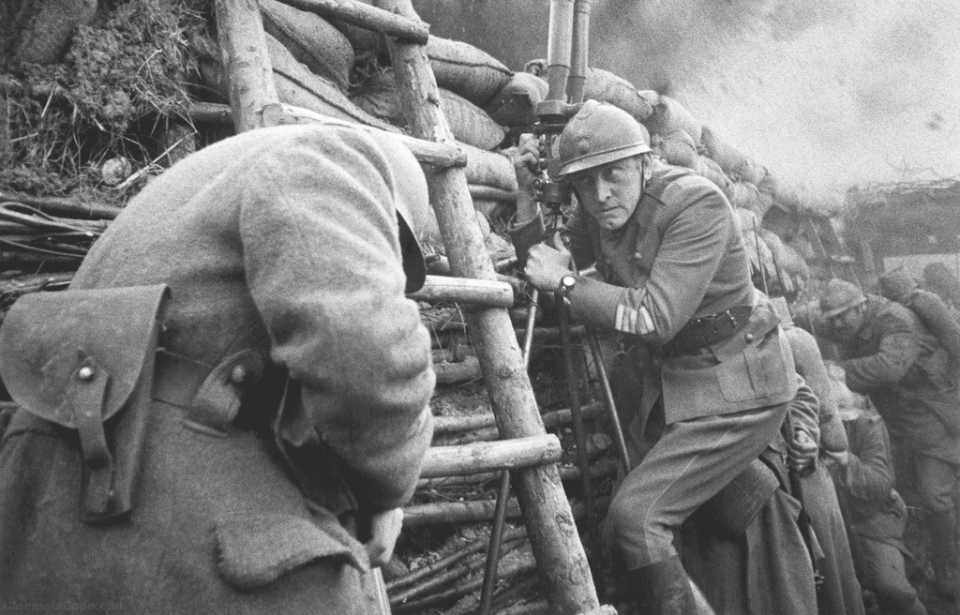War movies have always been one of the most popular genres of film and, for many years, they unambiguously portrayed their conflicts as noble. Renowned filmmaker Stanley Kubrick changed that with 1957’s Paths of Glory. The movie, which was loosely based on the story of French soldiers during World War I, was beset with both controversy and critical acclaim.
Paths of Glory was based on a novel
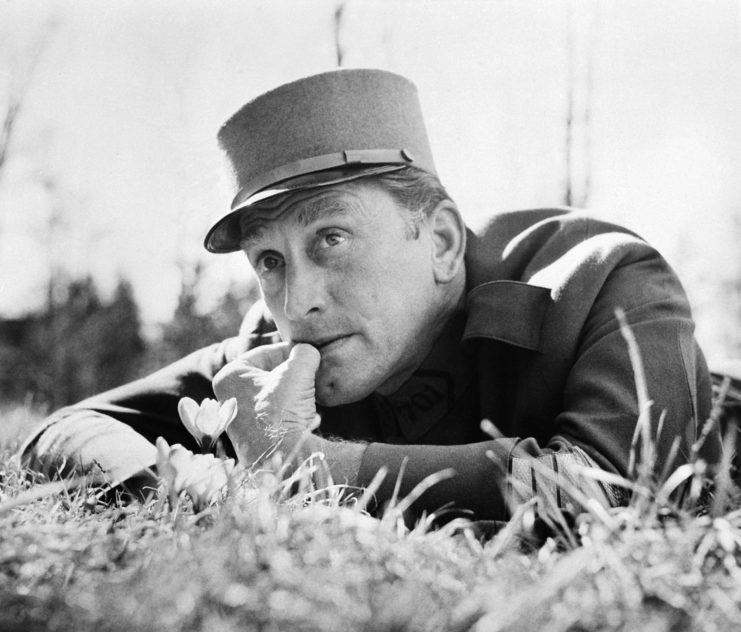
Stanley Kubrick‘s film was inspired by Humphrey Cobb’s Paths of Glory, which was published in 1935. Cobb, who lived in Italy, England and the United States as a youth, enlisted in the Canadian Army at just 17 years old and fought for three years during the First World War. Stationed on the frontlines, he fought in the Battle of Amiens in 1918.
Upon the conflict’s conclusion, Cobb moved to New York City, where he worked as a copywriter. It was during this time that he wrote Paths of Glory. The novel, which follows three French soldiers who are court-martialed and executed to save their senior commanders, is based on the Souain Corporals Affair of 1915, in which four French corporals were executed for cowardice, to set an example to others serving on the front.
Souain Corporals Affair
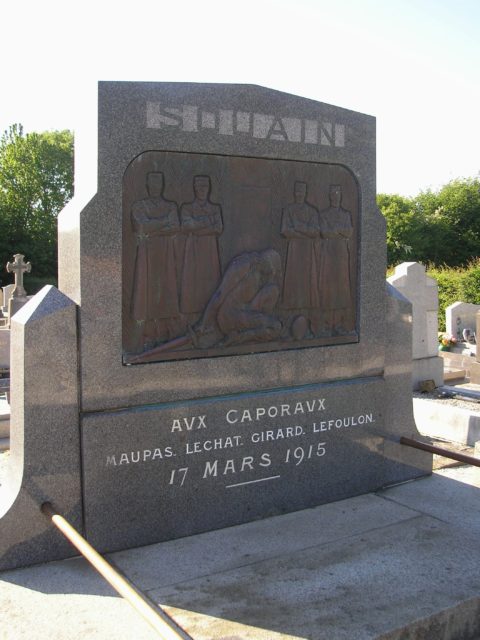
In March 1915, the French were locked in a fierce campaign against the Germans on the Western Front, near Souain. Several unsuccessful attempts were made to take positions away from the enemy, with many French soldiers dying after charging German positions, which were fortified with barbed wire and machine guns, with only their bayonets.
On March 10, 1915, soldiers with the 21st Company, 336th Infantry Regiment, 60th Infantry Division were tasked with trying to go over a German trench. Prior to this, an artillery barrage had accidentally dropped shells over the French trenches, instead of those manned by the Germans, destroying the ground over which the troops had been ordered to cross.
After seeing many of their comrades killed by machine gun fire, the remaining wave of troops refused to follow and stayed in their trenches. After the assault failed, Général de division Géraud Réveilhac demanded that the company’s commander, Capt. Equilbey, give him a list of the men who refused the order.
All 24 – six corporals and 18 enlisted soldiers – were court-martialed.
Executions followed the failed assault
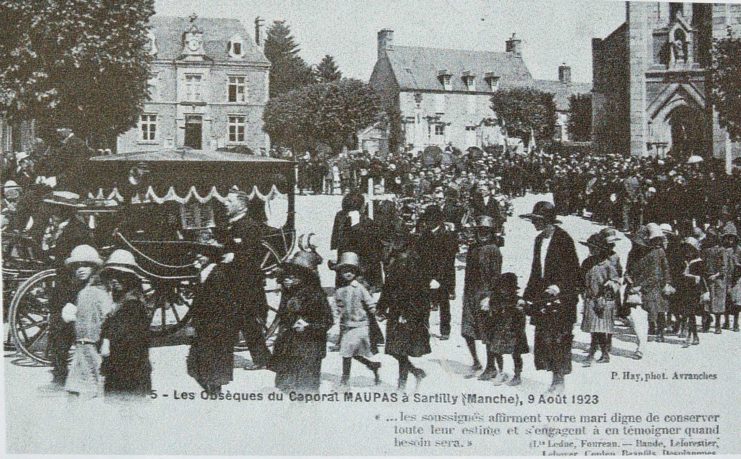
A tribunal was held on the basis of the French Army’s Code of Military Regulations, which stated that no appeal of the decision was allowed. The tribunal occurred on March 16, 1915, during which all 24 men were sentenced to death.
Of the 24 who received this sentence, 20 avoided the death penalty, on the grounds that 18 of them had been arbitrarily chosen, while two of the corporals hadn’t heard the order to attack. The remaining four – Cpl. Louis Victor François Girard, Cpl. Lucien Auguste Pierre Raphaël Lechat, Cpl. Louis Albert Lefoulon and Cpl. Théophile Maupas – were executed by firing squad the next day. In a cruel twist of fate, the French High Command commuted their sentences to forced labor just two hours after.
Following the executions, Maupas’ widow contacted the Human Rights League. While her initial efforts were denied, she spent the next 19 years fighting to have the convictions overturned. In March 1934, she was finally successful; a judge declared that the directive to walk into certain death was “impracticable.”
Reaction to Paths of Glory
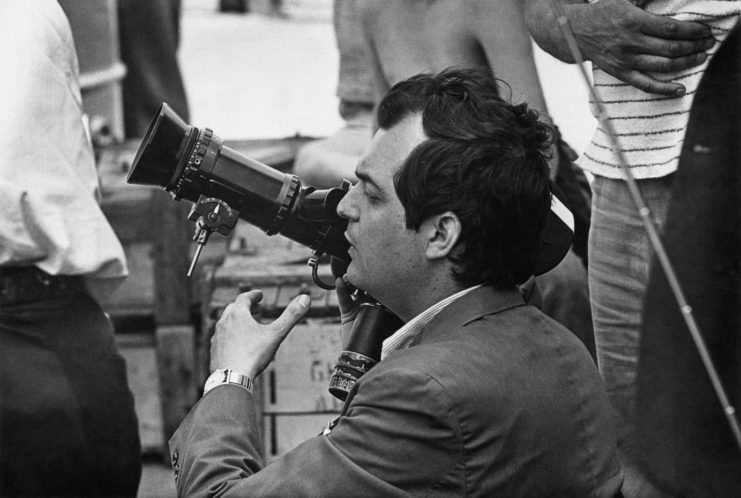
Paths of Glory was by no means a phenomenon when it hit theaters. The film was considered a modest financial success, making its money back. Following its release, critics agreed that Kubrick was an exceptional director and was destined for big things.
Paths of Glory was controversial in France. Many in the military felt the portrayal was inaccurate, and they disagreed with its clear anti-war sentiment. The film wasn’t shown in the country until 1975, some 18 years after its release. The governments of Switzerland and Spain also objected to the movie being shown in theaters, and it was subsequently withdrawn from the Berlin Film Festival. On top of that, US military bases were also barred from showing it.
Since then, Paths of Glory has been deemed “culturally, historically or aesthetically significant” by the Library of Congress and was entered into the US National Film Registry.
Legacy of the Souain Corporals Affair and Paths of Glory
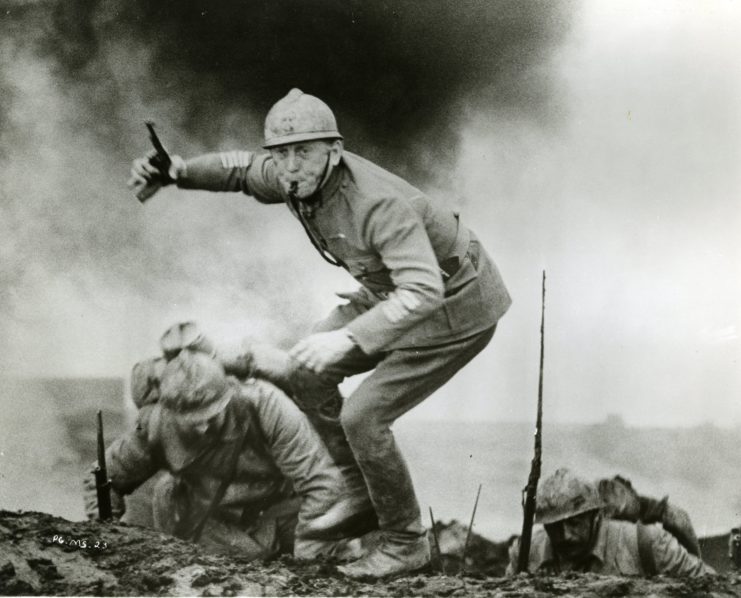
The French soldiers who stood up for themselves during the WWI assault are remembered much differently than they were over 100 years ago – and that change began before the book and movie were released. A monument honoring the four who were executed was erected in France in 1925, and upon their exoneration in 1934, their families received a symbolic franc for their hardship. In addition, they were given the ability to claim pension rights.
More from us: Battle for Hill 3234: The True Story Behind the ‘9th Company’ Movie
In 2009, the film Blanche Maupas was released, telling the story of the widow’s fight to exonerate her husband. As well, multiple streets and a school have been named in Théophile Maupas’ honor.
